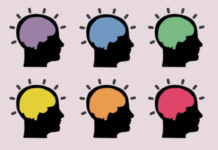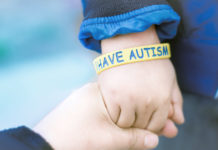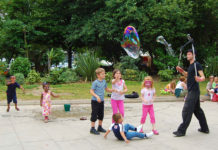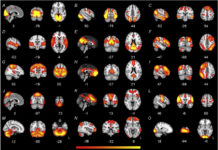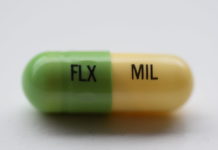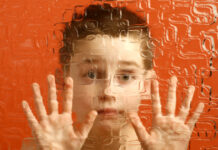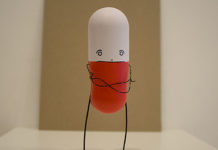“Virtual Autism” May Explain Explosive Rise in ASD Diagnoses
New clinical case studies have found that many young children who spend too much screen time—on TV’s, video games, tablets and computers—have symptoms labeled as “autism.” When parents take away the screens for a few months the child’s symptoms disappear.
Neurodiversity is Dead. Now What?
The neurodiversity movement is a public relations campaign that emphasizes the positive qualities associated with some presentations of autism—creativity, increased tolerance for repetition, enhanced empathy, and exceptional memory—while erasing or minimizing the experiences of autistics who are severely disabled.
The Scientism of Autism
Autism is now simply assumed to represent a real, tangible, identifiable ‘thing.’ But no one is asking the obvious question: On what evidential basis can you conclude that autism represents a natural category that can be differentiated from other natural categories? According to the real science, autism should be seen as a fact of culture, not a fact of nature.
Antipsychotics Associated with High Risk of Death in Children
A new study has found that children and adolescents taking a high dose of antipsychotics are almost twice as likely to die of any cause than children on other types of medications.
No Brain Connectivity Differences Between Autism, ADHD, and “Typical Development”
Neuroscience researchers find no differences in brain connectivity between children with diagnoses of autism, ADHD, and those with no diagnoses.
Fluoxetine Not Helpful for Children with Autism
A clinical trial finds Prozac no better than placebo for improving repetitive behaviors.
If Autism Isn’t a Brain Structure Difference, Then What?
In Discover magazine, Neuroskeptic examines a new, large-scale study of brain anatomies of people with autism, calling it an "earthquake" in autism research and...
Antidepressants and Pregnancy: Who Says They Are Safe?
Depression during pregnancy is an important issue. Depression should not be ignored and depressed pregnant women deserve good treatment and care. Part of that good care, though, is providing them with full and correct information. I care for pregnant women taking antidepressants on a daily basis and too often they tell me that the only counseling they received about the medication was, “my doctor told me it’s safe in pregnancy.” This post will review the evidence in this area and address the counterarguments.
Maternal Antidepressant Use Tied to Autism
In a major study, published yesterday in JAMA Pediatrics, the use of SSRI antidepressants during pregnancy was found to increase the risk of autism spectrum disorder (ASD) by 87-percent. Previous studies reveal that more than 13-percent of women currently use SSRI antidepressants during pregnancy.
Children with Autism may be Over-diagnosed with ‘ADHD’
A commonly used ADHD diagnostic measure may find overlapping symptoms in autism and ADHD, resulting in over-diagnosis.
Common Off-label Drug for Autism No Better than Placebo
The Alzheimer's drug memantine (also known as Ebixa or Namenda) is being regularly used off-label in the treatment of childhood autism, Asperger’s, and Pervasive...
Smash the Blue Lights: Autism Speaks is a ‘Danger to Self and Others’
There are few around Mad in America territory who would argue against the dangers of the National Alliance for Mental Illness. But as a movement, we often fail to recognize the dangers of their much younger sibling named ‘Autism Speaks’.
SCOTUS Declines Risperdal Appeal, J&J to Pay $124 M
On Monday, the US Supreme Court declined to hear Johnson and Johnson’s final appeal, forcing the company to pay $124 million for the deceptive marketing of the antipsychotic Risperdal. In 2011, South Carolina ordered the company to pay $327 million for pursuing “profits-at-all-costs” in its efforts to persuade doctors to prescribe their drug, but the fine was lowered to $136 million last year. The company had hoped to argue that the remaining penalties constituted an “excessive fine” and was supported by PhRMA, the Washington Legal Foundation, the Cato Institute and the Chamber of Commerce.
Yoga and Mindfulness Benefit Youth with Autism Spectrum Disorder
A new review finds preliminary evidence for yoga and mindfulness-based interventions for youth diagnosed with Autism Spectrum Disorder (ASD).
New Study Finds Brain Changes in Newborns Exposed to Antidepressants
A fist of its kind neuroscience study, published this month in Cerebral Cortex, found changes in the brain electrical activity of infants exposed to SSRI antidepressants during pregnancy.
Emotional Child Abuse Just as Harmful as Physical Abuse
Different types of child abuse have equivalent psychological effects, according to a study in JAMA Psychiatry. It has previously been assumed that emotional and verbal abuse could have different or less harmful impact on a child’s psychology than physical or sexual abuse, but research now suggests that these forms of abuse can be just as damaging.
Top Ten Things You May Not Know About the ICD-10
In this piece for Psychology Today, Dr. Jonathan D. Raskin lists 10 facts about the current version of the International Classification of Diseases, which is...
Exposure to Antidepressants in the Womb Linked to Autism
Researchers, publishing in Toxicology Research, review the evidence that antidepressant exposure in the womb is linked to autism spectrum disorders (ASD) in humans.
How Stigma and Social Factors Drive the Negative Health Outcomes Associated with Autism
A new study explores the interplay between social stress and quality of life for individuals self-identified with high-functioning autism.
Exposure to Antidepressants in the Womb Linked to Autistic Behavior in Mice
Researchers experimenting on mice found that exposure to fluoxetine (Prozac) in utero resulted in behaviors considered in animal studies to be analogous to autism in humans.
Experts Decry Dangerous Use of Antipsychotics in Children
In a featured article for Psychiatric Services, psychiatrists from Dartmouth raise the alarm on the increasing numbers of children prescribed dangerous antipsychotic drugs. Despite the fact that data on the safety of long-term use of these drugs in this vulnerable population “do not exist,” the rate of children and adolescents being prescribed antipsychotic drugs have continued to increase over the past fifteen years.
The Social Consequences of a Diagnosis on the Autism Spectrum
It’s time to change how we think about and relate to people whose makeup is or appears to be different from the norm. Currently, the dominant way in research, practice and the general public is to think of what’s different—let’s say a biological or neurological difference—as the source of disability and difficulty, and to relate to and treat (in various ways) that biological or neurological difference. But there’s another way to go, and more and more researchers and practitioners are taking it.
“Antipsychotic Use in Youth Without Psychosis: A Double-edged Sword”
This month’s issue of JAMA Psychiatry ran an editorial commenting on recent research revealing that the majority of youth prescribed antipsychotics have not been diagnosed with a mental disorder.
Abilify: The Drug That Could Gamble Your Life Away
On this episode of America's Lawyer, Mike Papantonio discusses the numerous lawsuits pending involving the anti-psychotic drug Abilify, which has caused plaintiffs to develop serious...
New Research on Prenatal SSRI Exposure and Autism
Does maternal SSRI exposure increase the chances that a child will develop characteristics associated with Autism Spectrum Disorder (ASD)?


